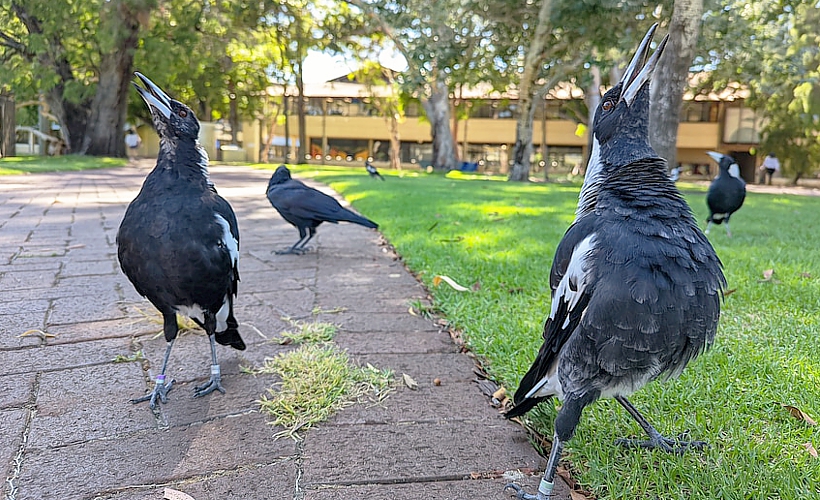
The sound of magpies warbling in the morning is synonymous with life in Australia, but Perth researchers are predicting a bleak future for the beloved species.
Research conducted by associate professor Amanda Ridley and her team at the University of Western Australia has found that very hot weather is affecting the birds” ability to survive, reproduce and raise their chicks.
Dr Ridley, who has been collecting data on magpies since 2013, said heatwaves had devastated the birds and their babies over the past three summers.
“During that very bad heatwave (in 2019–2020), which caused terrible bushfires all across Australia, we had zero reproductive success,” Dr Ridley said.
ABOVE: Two magpies from Amanda Ridley’s research group warbling at the University of Western Australia recently. (ABC Radio Perth: Alicia Bridges)
The Western Australian Climate Projections summary, a document prepared by the state government, predicts the number of very hot days over 35 degrees Celsius in WA’s South West will increase from 28 to 36 by 2030, under an “intermediate emissions scenario”.
By 2090, the number of days would increase to 63.
Dr Ridley and her team, the Western Magpie Research Project, work with multiple groups of wild but tame birds across Perth.
She said the more recent heatwave over the 2021 holiday period had also affected the birds.
The team‘s research has found that the magpies suffer cognitive decline when the temperature reaches around 32 to 33°C.
They experience heat stress which hinders their ability to forage for food and feed their babies.
CONTINUE READING
ABC News, Alicia Bridges